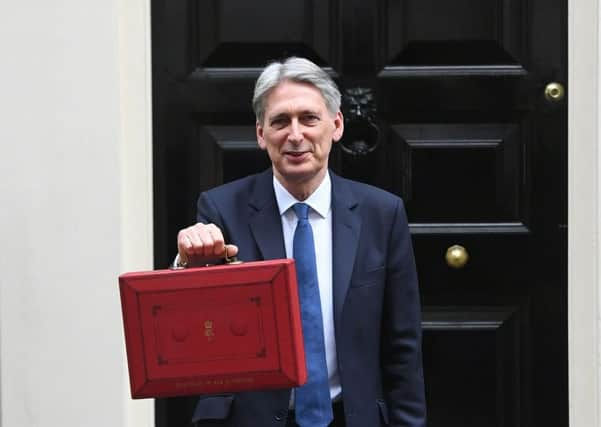YP Comment: Will Hammond remedies work? Budget buys Chancellor time


Time will tell, however, whether the Chancellor’s remedies will work in the longer term when the Government’s noble endeavour to balance to books conflicts with the needs of an ageing society.
No one, however expert, knows for certain, not even Mr Hammond. And the reason for this uncertainty – Brexit – was barely mentioned until Labour leader Jeremy Corbyn referred to ‘breakfast’ during a lame response that deserves to be remembered for its economic illiteracy and ineptness rather than this one slip of the tongue.
Advertisement
Hide AdAdvertisement
Hide AdIt explains why the Chancellor chose to make a point of the country’s economic resilience since the UK voted to leave the European Union – he has to plan for unforeseen occurences and he also accepts, unlike his critics, that Britain’s indebtedness remains unsustainable.
This backdrop, coupled with the predicted slowdown in growth once Brexit is completed, illustrates, in part, Mr Hammond’s uncharacteristic decision to impose an entrepreneur’s tax on Britain’s 4.75m self-employed workers, who represent 15 per cent of the labour market.
The backbone of the economic recovery that has taken place since 2010, it contradicts a Tory manifesto commitment not to increase National Insurance and is indicative of the difficult times that clearly lie ahead.
A policy expected to raise just £145m a year – further evidence of the strained public finances – it has the potential to be the Tory party’s ‘tuition fees’ moment unless Mr Hammond can convince those concerned that the move is justifiable when such workers don’t enjoy, for example, the safety net of paid holidays, sick pay and other benefits enjoyed by those who are employed by others.
Advertisement
Hide AdAdvertisement
Hide AdGiven that it also contrasts with the benevolence afforded to Facebook and other global corporations who have minimised their tax obligations, it’s a significant gamble from a cautious Chancellor, conservative by instinct, committed to aspiration, hence the welcome emphasis on technical education as part of a wider skills revolution made even more urgent by Brexit and advancemes of digital technology.
Without a new era of entrepreneurship, and without the most business-friendly taxes in the West to retain Britain’s competitive edge post-Brexit, the Chancellor simply won’t be able to reduce debt while providing the compassionate care expected for the elderly.
Today, there are half a million more people aged over 75 than there were in 2010 and this number will increase by two million over the next decade – recognition that Mr Hammond’s promised Green Paper simply buys Ministers time, despite £100m to create A&E triage systems to ease the pressure on overstretched hospitals.
These changing demographics make it even more essential that future growth exceeds forecasts, and it’s not just the private sector which has a key role to play. So, too, do local authority leaders and this county’s devolution deadlock – in danger of becoming an embarrassment – is in marked contrast to new plans to turbo-charge the so-called Midlands Engine. As most of Yorkshire’s council leaders meet to discuss their differences, they do so in the knowledge that the long-term health of the country’s finances requires a collective effort – locally, regionally and nationally – and this is before Brexit begins.
Iron lady’s mettle: Heseltine disloyalty punished
Advertisement
Hide AdAdvertisement
Hide AdMORE than 30 years after walking out of Margaret Thatcher’s government over Westland in high dudgeon, Michael Heseltine has not lost his sense of political drama after leading the House of Lords revolt of Brexit. Despite being a passionate advocate for the regeneration of the North’s cities, he could not fulfil this role while remaining so opposed to the Government’s stance on exiting the European Union.
Unlike Mrs Thatcher, who never got the chance to sack her then defence secretary and eventual nemesis for disloyalty, Theresa May did not hesitate to do so and this test of mettle endears her still further to her party’s eurosceptics who still idolise the original ‘iron lady’ to this day.
The only surprise, even regret, was Lord Heseltine’s candid admission that he did not know Mrs May and had never spoken to her. Leaving aside his pro-EU views, the former Deputy Prime Minister remains a formidable figure who has been working tirelessly to transform those Northern cities that were neglected for too long. Given the wider importance of Mrs May’s One Nation agenda, she can’t afford to overlook such expertise, can she?